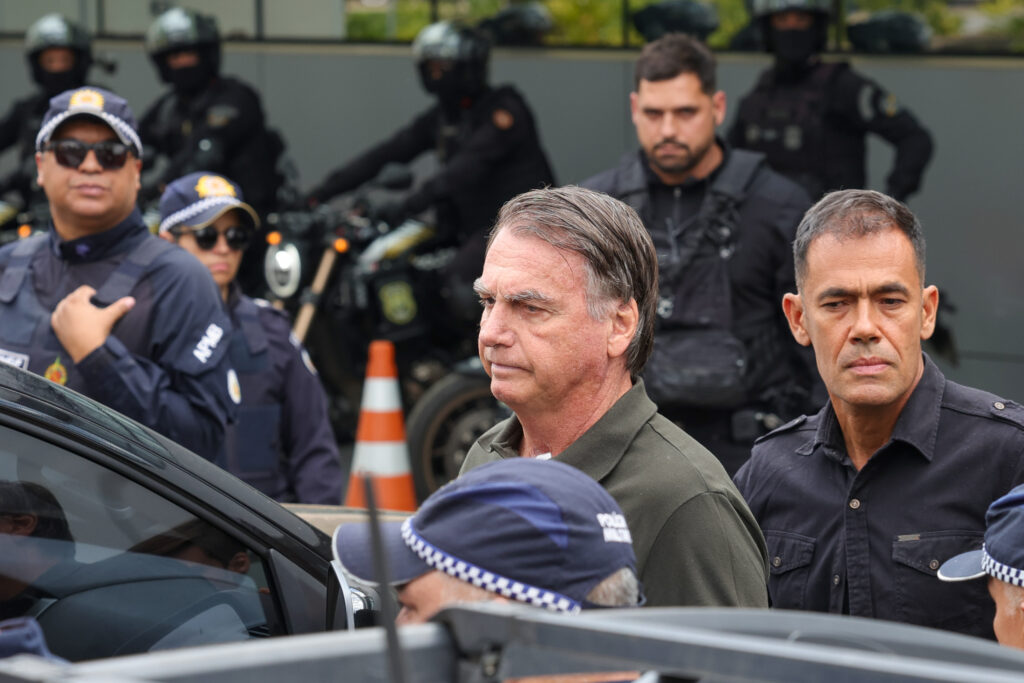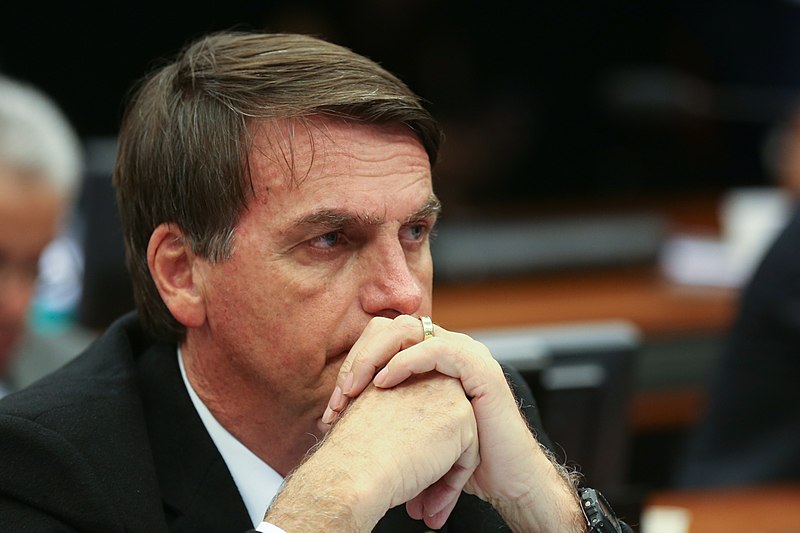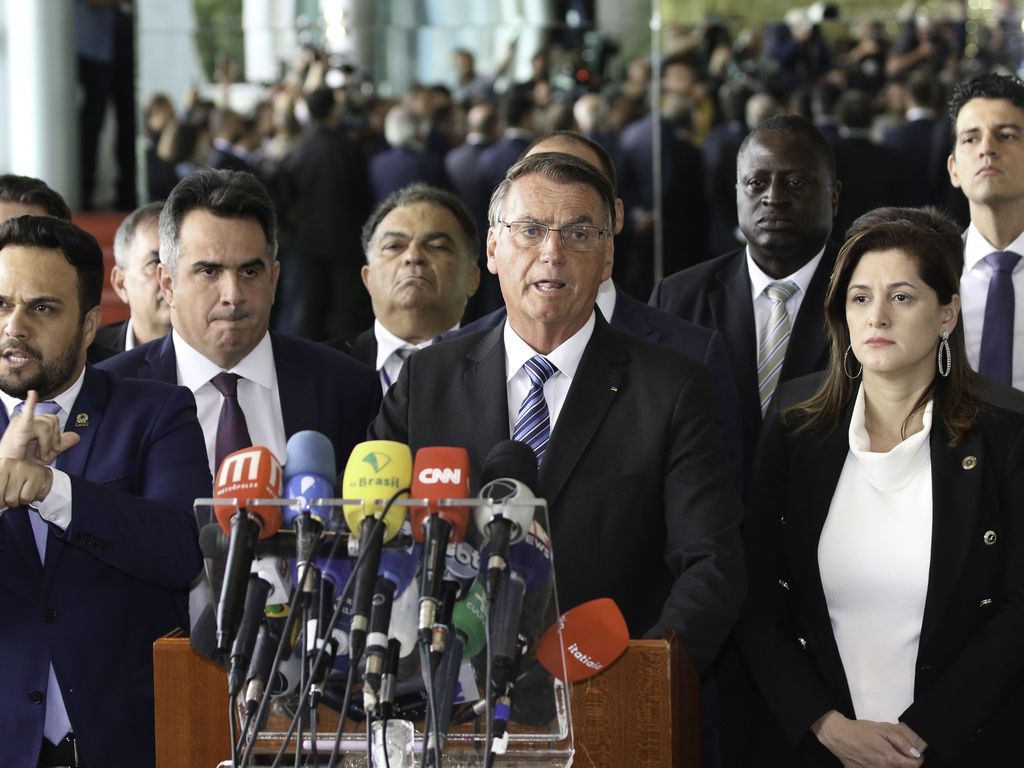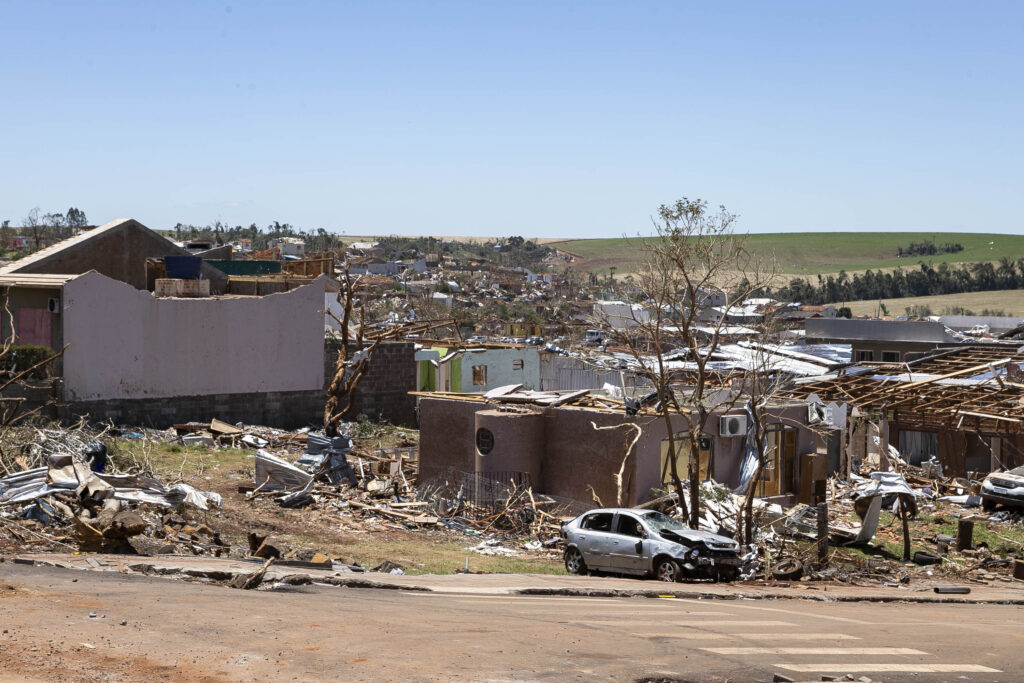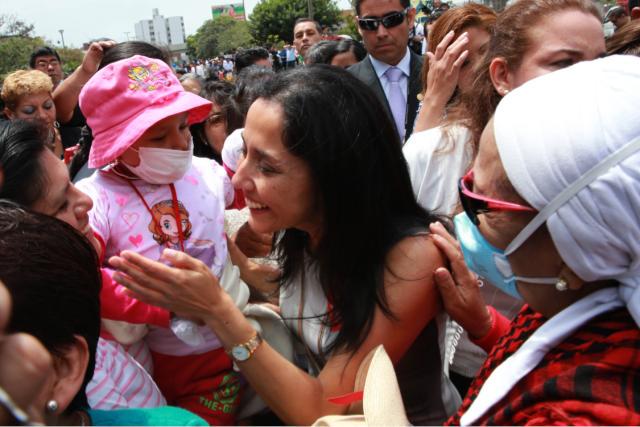São Paulo, Brazil – As the Chamber of Deputies debates a bill to regulate the internet, especially social media, known as the “fake news bill,” Brazil’s government is having a row with big tech companies like Google and Meta after the two companies posted content opposing the regulations.
The “fake news bill” affirms that social media, messaging apps and search platforms must act to withdraw or reduce the reach of accounts and publications accused of spreading criminal content, such as the encouragement of coups, acts of terrorism, suicide, crimes against children and teenagers, discrimination and prejudice, violence against women and health violations.
Voting on the legislation was initially scheduled for Tuesday, which intensified the rhetoric between President Luiz Inácio Lula da Silva’s government and big techs, especially Google. On Sunday, Google published a message on its homepage in Brazil saying, “The fake news project may increase confusion about what is true or false in Brazil.”
A link in the message led to a blog post by Google criticizing the project, highlighting potential censorship and a worsening of the internet experience in Brazil if the bill is approved.
The government reacted and, through the Ministry of Justice, ordered Google to mark the message as an advertisement, and said the company would be fined R$ 1 million (USD $ 200,000) if they did not comply.
Google ended up removing the link from its homepage.
The company was also accused by the Brazilian government of promoting content on its search engine that was contrary to the bill, while weakening the visibility of content that was favorable to the proposed internet regulations.
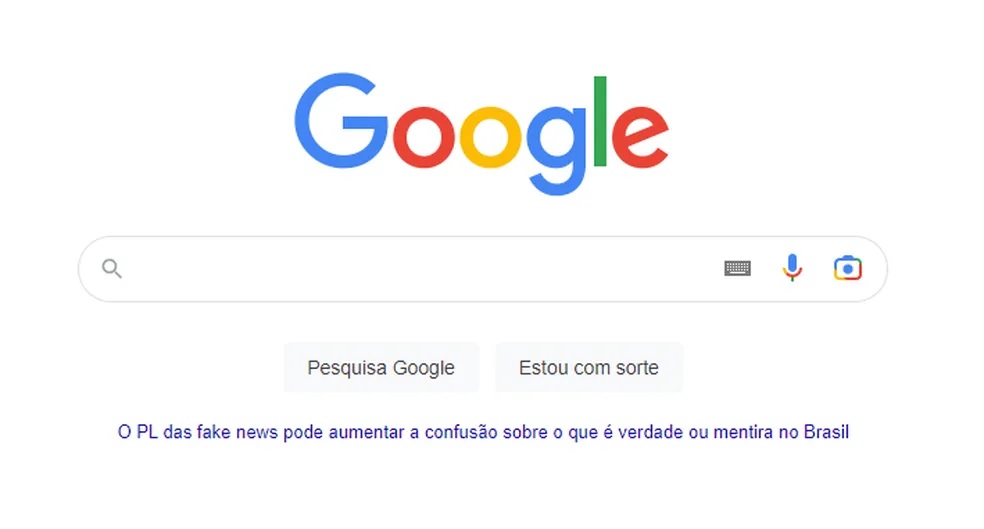
The Ministry of Justice acknowledged that Google “has the right to express its views on laws and regulations that affect its interests.” In this case, however, the ministry accused Google of not having acted with transparency, since there was no identification for the user that the content set on the homepage would be sponsored by Google itself.
According to Justice Minister Flávio Dino, the government found evidence that Google and other big technology companies, such as Meta, which owns Facebook and Instagram, were trying to manipulate the public debate to defend their own economic interests.
“We hope that platforms deactivate mechanisms of censorship or violation of freedom of expression with isonomy. And we remain open to dialogue. The law must prevail over a digital Wild West,” wrote the minister on his Twitter.
Google said the allegations that it acted to expand the reach of pages with content contrary to the bill were false. “We do not manually alter the results listings to determine the position of a specific page under any circumstances,” Google said in a statement.
Google didn’t deny being against the “fake news bill,” but says that it’s been manifested in a “public and transparent” way through its official blog and advertising campaigns.
“We have invested in marketing campaigns to give wider visibility to our concerns, through advertisements in traditional communication vehicles, such as newspapers, and in digital media, including our advertising platforms and social media,” added Google.
In addition to the government, big techs are also the target of investigation by the Public Prosecutor’s Office for allegedly disseminating advertisements contrary to the “fake news bill” without indicating that they were, in fact, advertising content.
In this investigation, Google, Meta and Spotify are the main targets. By order of the Supreme Court, directors of the three companies have already been subpoenaed to provide clarifications to the Federal Police.
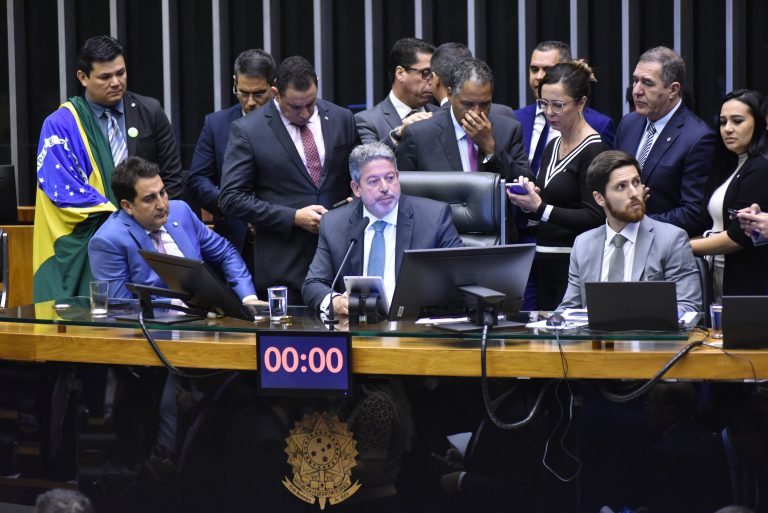
Vote postponed on Chamber
While the government and big techs are involved in a tug of war, the vote on the “fake news bill” was postponed at the request of the rapporteur, deputy Orlando Silva. He said he received many suggestions for improvements and would need more time to evaluate them, especially in relation to oversight of digital platforms.
The most controversial aspect of the original bill was the creation of a federal agency to oversee the application of the law. The agency would have special powers, for example, to act if the platforms don’t respect the legislation, including the ability to ban accounts and flag content as criminal.
Due to strong criticism, Silva removed the creation of the agency from the text and the definitions surrounding the oversight of big techs are still pending.
Behind the scenes, the information that circulated in Brasília, the country’s capital, was that the government didn’t have the necessary votes to approve the proposal (257 of the 513 deputies) and, therefore, asked the rapporteur, who is an ally of President Lula, to postpone it. A new date for voting on the bill’s text has not yet been set.



